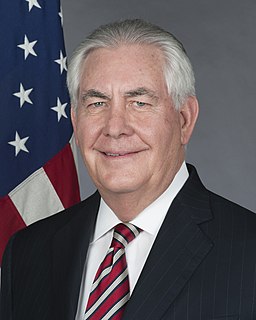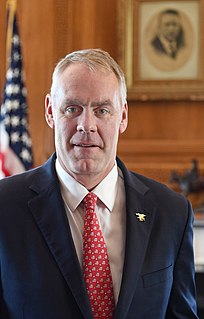A Quote by Michael McCaul
I would argue it should be a policy to defeat ISIS where they are, where they exist and prevent them from coming into the United States.
Related Quotes
Early withdrawal from Iraq would result in unarguably, defeat and humiliation for the United States. There's no question. We would be defeated by definition. We would be humiliated in that defeat. I don't think there's any other way to argue it. Whether it's a good thing or a bad thing is a separate question.
It's important that we keep our priorities straight. And we believe that the first priority is the defeat of ISIS. That by defeating ISIS and removing their caliphate from their control, we've now eliminated at least or minimized a particular threat not just to the United States, but to the whole stability in the region.
In the United States, one of the main topics of academic political science is the study of attitudes and policy and their correlation. The study of attitudes is reasonably easy in the United States: heavily-polled society, pretty serious and accurate polls, and policy you can see, and you can compare them.
Constraint theory argues a number of things. First, that the impossible has to be identified. Second, that the actor is then constrained by circumstances to act a certain way. For example, should we invade ISIS? Can we invade ISIS? What would it take to invade ISIS? Once you ask that question you discover the price of that option and then you take a look at American politics and see that the country is probably not prepared to invest the 2 to 3 million people that it would take to defeat ISIS and the insurgency afterwards. All right, so that's not going to happen.
When I am the president of the United States of America, we don't know who you are, and we don't know why you're trying to come to the United States, you are not going to get in, because the radical threat that we now face from ISIS is extraordinary and unprecedented and when I'm president, we are keeping ISIS out of America.
And that the said Constitution be never construed to authorize Congress to infringe the just liberty of the press, or the rights of conscience; or to prevent the people of the United States, who are peaceable citizens, from keeping their own arms; or to raise standing armies, unless necessary for the defense of the United States, or of some one or more of them; or to prevent the people from petitioning, in a peaceable and orderly manner, the federal legislature, for a redress of grievances; or to subject the people to unreasonable searches and seizures of their persons, papers or possessions.
If Christians should vote their duty to God at the polls, they would carry every election, and do it with ease. They would elect every clean candidate in the United States, and defeat every soiled one. Their prodigious power would be quickly realized and recognized, and afterward there would be no unclean candidates upon any ticket, and graft would cease.
What's going to be hard for the United States is that our policy for a long time has been a two-state solution; the Palestinians should have their own state. Now, the Palestinians are going to the U.N. and saying, 'We're having the U.N. vote to say we have our own state. Well, if that's your policy, United States of America, why are you vetoing it?' Which we will do.
It is truly vital for the United States to assure that it is not attacked with weapons of mass destruction; to prevent wars in other countries from spreading onto American soil; and to maintain access to global sea lanes on which our economy depends. Beyond that, there is little or nothing in the world that should draw the United States to war.































